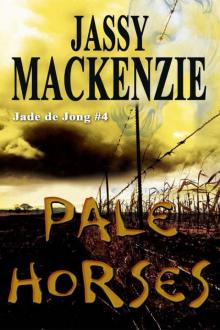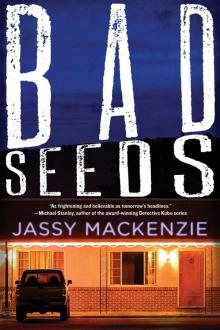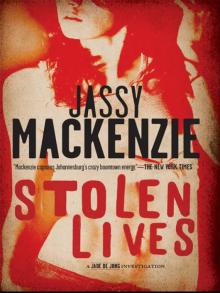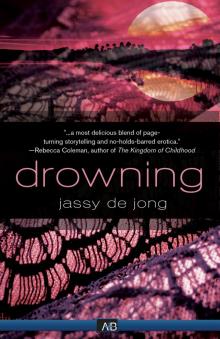- Home
- Jassy Mackenzie
The Fallen
The Fallen Read online
Also by Jassy Mackenzie
Random Violence
Stolen Lives
Copyright © 2012 by Jassy Mackenzie
All rights reserved.
Published by
Soho Press, Inc.
853 Broadway
New York, NY 10003
Library of Congress Cataloging-in-Publication Data
Mackenzie, Jassy.
The fallen / Jassy Mackenzie.
p. cm.
eISBN: 978-1-61695-066-8
1. De Jong, Jade (Fictitious character)—Fiction. 2. Women
private investigators—Fiction. 3. Murder—Investigation—
Fiction. 4. Saint Lucia—Fiction. I. Title.
PR9369.4.M335F35 2012
823′.92—dc23
2011042050
v3.1
In memory of Bree O’Mara
Contents
Cover
Other Books by This Author
Title Page
Copyright
Dedication
Chapter 1
Chapter 2
Chapter 3
Chapter 4
Chapter 5
Chapter 6
Chapter 7
Chapter 8
Chapter 9
Chapter 10
Chapter 11
Chapter 12
Chapter 13
Chapter 14
Chapter 15
Chapter 16
Chapter 17
Chapter 18
Chapter 19
Chapter 20
Chapter 21
Chapter 22
Chapter 23
Chapter 24
Chapter 25
Chapter 26
Chapter 27
Chapter 28
Chapter 29
Chapter 30
Chapter 31
Chapter 32
Chapter 33
Chapter 34
Chapter 35
Chapter 36
Chapter 37
Chapter 38
Chapter 39
Chapter 40
Chapter 41
Chapter 42
Chapter 43
Chapter 44
Chapter 45
Chapter 46
Chapter 47
Chapter 48
Chapter 49
Chapter 50
Chapter 51
Chapter 52
Chapter 53
Chapter 54
Chapter 55
Chapter 56
Chapter 57
Acknowledgments
1
Themba Msamaya didn’t suspect a thing on the morning he opened his door to death.
He was halfway through his first cup of tea when the knock came. Over the past few months, he’d developed something of a ritual. He’d get up early, boil the kettle and dunk a bag of cheap, Shoprite own-brand tea into a chipped South African Airways mug. He’d learned to do without milk, but a teaspoon of sugar was an essential. Black tea didn’t have to be so strong—it tasted better weak, in fact—and he had discovered one teabag could easily stretch to two mugs.
He would drink the steaming, reddish brew while sitting at the desk in his tiny Yeoville bedsit, yesterday’s papers open at the Classifieds, his elderly laptop ready to browse the Jobsearch websites.
Over the last few days, his searching had become more stressful, because his useless Internet connection, slow at best and unreliable at worst, was close to reaching its cap. He’d nearly got through the five hundred megabytes that his low-spec package allowed him, God knew how, seeing it was only the twenty-second of the month, and all he’d been using it for was trying to find work. But once the threshold was reached, he would be cut off. Rudely, instantly and without any warning. It had happened a couple of times recently, once while he was right in the middle of sending off his CV.
Today, JobSA was slow to load and Workopolis had no new listings, but his favourite site, NATS Careers, was advertising a position that looked promising.
Email us your application and CV, the advert read. All companies required candidates to do that these days. Phone calls appeared to have become redundant.
A quick read through the well-worded CV that he’d paid a specialist company to put together for him five months ago. Now he wished he hadn’t wasted the money on it.
Did he need to change anything in the accompanying letter?
He scanned the document once more, slowly, even though he knew the damn thing by heart. He thought it sounded fine. As fine as was possible, at any rate. He attached it and pressed ‘Send’, willing the email to go through the first time, praying that the connection would not drop, as it often did, forcing him to repeat the task and gobbling up even more of his precious bandwidth allocation.
A series of clanging sounds and shouts from outside disturbed his concentration, and he looked up, frowning. Was this his neighbour causing trouble again? Themba didn’t know him by name, but he was convinced the guy was a drug dealer. People were in and out of that room at all hours, talking, partying, banging on his door late into the night, and occasionally on Themba’s door by mistake; and just last week he had overheard an argument that had ended in a gunshot.
No, it couldn’t have been his drug-dealing neighbour. The morning after the gunshot, he’d been on his way to the shops when he’d seen the man hurrying down to the garage, carrying what looked like a hastily packed gym bag, half zipped up, in one hand, and his firearm in the other. A few minutes later, Themba had heard the unmistakable roar of his black, souped-up, spoiler-decorated BMW. The man had left and, as far as he knew, he hadn’t been back since.
Then Themba realised what the sound was. It was the dustbins being emptied. There had been a municipal strike for weeks, and the bins lined up on the uneven paving outside the building had quickly gone from full to overflowing. Black bags had split open and vomited their contents onto the pavement and into the road. Those that hadn’t split had been torn apart—by stray dogs or vagrants or both, he guessed. Crumpled plastic now littered the sidewalks, mushy piles of leftover food had swiftly started stinking in the heat, and dirty nappies disgorged their foul contents, which were soon blanketed by flies.
Now he could hear the loud drone of the garbage truck and the clanking of its crushing mechanism. Above this, the shouts of the workers, more clanging as empty metal dustbins were flung on their sides, and the clatter of the plastic wheelie bins being upended.
And then a second, closer sound, only just audible above the racket. A quick, polite-sounding rat-tat-tat on his door.
Themba glanced at the email. It looked like it was going through. Then he got up from his wooden chair and squeezed past his bed. As he wasn’t expecting anyone, he was sure that whoever was outside the door was yet another customer looking for his drug-dealer neighbour.
He twisted the Yale latch open with his right hand, pulled the door handle down with his left, and opened the door a crack, snapping out a rather irritated ‘Yes?’ before squinting out into the shady corridor.
That one word was all he had time for. The door exploded open, its handle wrenched out of his hand, its edge smashing against his temple as he staggered backwards and a sharp, stabbing pain lanced through his gut.
Themba slammed against the rickety desk and sprawled down onto the floor, blinking as hot rivulets of spilled tea splashed down onto his face.
And then a black-clad figure wearing a dark mask was inside, standing over him. The pain in his stomach was dreadful; he could taste blood in his mouth, but in his shock he hadn’t begun to associate any of this with the slim black handle that now jutted from his midriff.
Until his assailant leaned forward, grasped the handle with a gloved hand, and pulled.
The pain
was sickening. Themba screamed, a shrill, breathy sound, and clamped his hands over the deep gash, now pouring blood. He glanced up, only to see the knife coming at him again.
‘Don’t …’ he begged, but his voice had reduced to a whisper. He mouthed the words, ‘Please don’t.’
He wanted to plead for his life, to explain that this wasn’t fair, that this was the wrong room, that he was not the right man. That he didn’t deal in drugs and never had. That this was all a terrible mistake.
But there was no time.
He tried to stop the blade, tried to grab it with his right hand, but it sliced cleanly through his palm and buried itself in his chest.
And then his attacker was gone.
Themba found he couldn’t move. He wanted to cough, but he couldn’t do that either. All he could do was lie in his own blood, watching as a dark mist rushed to cover the smeary ceiling.
Outside, the clanging of the garbage truck faded into silence.
2
Jade de Jong was fighting to convince herself she wasn’t going to drown.
She was six and a half metres under the surface of the sea and sinking, with tons upon tons of water forcing her downwards. She was burying herself in a pale-blue grave, every movement of her fins taking her closer to the ocean’s sandy floor and further from the sky and sun above.
She reached out in front of her, striking forward, pushing just a tiny fraction of all that water aside, noticing that her cupped hand looked sickly white in the dim light. Like a sea spectre. Or perhaps more like a corpse.
The thought paralysed her with fear—she was unable to keep going down, unable now even to breathe. Just as she had been on the dive before. And the dive before that.
God, get me out of here, she thought frantically. She knew how easy it would be to escape. A few kicks with her flippers and she could be hurtling up out of the depths, shooting to the surface, ripping the mask off her face. The next big breath she took could be real air. Proper air, not the dry-tasting canned stuff in the tanks on her back.
With her heart banging so hard she was sure it must be sending a subsonic message of panic to all sea life within a two-kilometre radius, Jade forced herself to stay put. She did what Amanda Bolton, her personal scuba-diving trainer, had told her to do. Gently exhale and send a rush of bubbles upwards. Then breathe in again. Slowly and easily. She had to force herself to relax, a command that Jade had realised on her first dive was physically impossible. This time, though, she managed to keep her fear at bay. She took a long, relieved gulp of air and then signalled to the wet-suited figure who was a few metres in front of her and looking at her enquiringly, waiting for her to communicate what she wanted to do next.
Closing her fist with her thumb towards the surface, Jade gestured upwards.
Get me out of here.
Amanda signalled back ‘OK’. Escaping locks of her dark hair swirled, mermaid-like, around her face. Then she made another sign that Jade knew meant: slow. Take it slow going up. No panicking.
As Jade kicked towards the surface, she saw a shoal of fish swimming past. Small silvery-looking fish that seemed almost impossibly bright in the clear water—a scattering of marquise-cut diamonds on an aquamarine backdrop. They swam fast and purposefully, as if they were late for an important appointment.
Pretty, yes. But worth the dive? Jade didn’t think so. And as for the rest of the sea life she’d heard so much about but hadn’t seen yet, like the huge leatherback and loggerhead turtles that the St Lucia estuary was famous for—well, she was sure there’d be some in a glass tank, ready for viewing, at uShaka Marine World in Durban.
Jade had thought learning to scuba dive would be easy, but it was proving to be the opposite. She’d managed her training dives—eventually—but open water terrified her, and she had never thought it would.
She’d expected that she’d take after her mother in this regard, as she did in so many other ways. Her late father had been a reluctant swimmer, a man much more comfortable out of the sea than in it. Although he’d never spoken much about her mother, Jade was certain that she remembered him saying once how much she had loved scuba diving.
Now she realised she must have inherited her father’s dislike of the ocean.
At last she broke the surface and pulled off her claustrophobic mask. Treading water, she looked up gratefully at the cloudless sky and felt the coolness of the air against her face. It wouldn’t have this effect for long—not in this heat, with the humidity smothering the estuary like a pillow, but the first few minutes out of the water always felt refreshing.
Miles of sea all around her in every direction, stretching all the way to the horizon on the seaward side, and the faraway rolling outline of the forested dunes on the shoreward side. The vastness of that distance didn’t worry Jade too much. It was the depths below her that gave her the shivers.
Then Amanda surfaced beside her.
‘Short break?’ she suggested.
Jade nodded and they swam over to the dive boat waiting nearby and clambered on board.
‘Well, that seemed to go better,’ Amanda said in an accent that Jade had originally thought was from southern England, but which she had laughingly confessed was pure East End. ‘Fifteen minutes under, this time. That’s two minutes longer than on the last dive, and you went further, too. Quite an improvement, I think. How do you feel?’
Jade frowned.
‘It still doesn’t feel like my environment. I’m just not comfortable going so deep, although I know by scuba standards six metres is barely under water.’ Bending over, she eased her fins off, then unzipped the wetsuit, which was already feeling too warm, and pulled it down off her shoulders.
‘You’ll get there, don’t you worry. Most people take to it like a fish to water, ’scuse the pun, but some never get the hang of it. Others learn how to do it, but just don’t like it.’
‘Does that ever change?’ Jade asked, glancing longingly at her T-shirt and shorts that were folded up on the bench.
‘Oh, it often does.’
Amanda sounded so chirpy that Jade had no idea whether she was humouring her or not.
‘Just you wait. In a couple more days, we’ll have you out on the big boat, diving in a group with your boyfriend. That’s where you really want to be, isn’t it?’
Jade didn’t miss the sympathy in her voice. But she couldn’t argue with her, because the scuba instructor was spot on. One hundred per cent correct. She didn’t want to be here, taking private lessons that were being offered at no extra charge, thanks to Amanda’s kind-heartedness. She did want to be out on the big boat with police Superintendent David Patel, who might or might not be her boyfriend, but who was most definitely going to be her partner on this trip.
David already knew how to scuba dive, so Jade’s plan had been for her to complete the diving course with a couple of other beginners at the resort, which rejoiced in the name of Scuba Sands, and then to join David in exploring the rich coral reefs that lined the estuary in the iSimangaliso Wetland Park—reefs that Jade had been interested to learn were the southernmost in the world.
But nothing had gone as planned.
Jade’s own fear of open water had held her back. The other beginners had completed the course without trouble and had left that morning for a full-day’s diving out on the reef with Monique du Preez, the other instructor.
And David wasn’t even at the resort yet. He’d been supposed to drive down with Jade at the start of the week, but he had been delayed in Jo’burg after a drug-smuggling case he was working on had, in his own words, ‘hit the bloody fan harder than a shit-bomb’.
He’d messaged her last night to say that he was getting an afternoon flight from Jo’burg today and would be landing at King Shaka International Airport in Durban at four-thirty. As soon as she and Amanda got back to shore, Jade would set off to fetch him. But before that, she had one more dive still to get through.
She stepped over to the prow of the boat and grasped the metal r
ailing. Just a few minutes out of the water and she was already starting to feel sweaty in the oppressive humidity. The sea was as flat and still as a pond, and the sun burned down from a metallic sky.
‘I’m not used to failing,’ she admitted. It was easier to say the words when she wasn’t looking at the other woman. ‘Up till now, I’ve always managed to do everything I’ve wanted to do. Some things have been easy, like …’
She stopped herself. She’d been going to say: like shooting. That had come naturally to Jade. The first gun she had fired at the age of twelve had been a rifle almost as tall as she was, and she’d hit her target—a Coke can—at a distance of more than a hundred metres.
Admittedly, that gun had had telescopic sights. But the handguns she’d fired since then had not. Guns felt like an extension of her own body; shooting was almost as instinctive as breathing.
She had made a promise, though, that she wasn’t going to talk about her work activities on this holiday. Not with David there. Her ability to shoot, and what she had used it for, had caused problems between them that, at one stage, Jade had feared were permanent and would never be resolved.
Amanda laughed, obviously misinterpreting Jade’s sudden silence. ‘Yeah, I know. You can never remember all the things you can do easily when you’re thinking about the one thing you can’t.’
‘Cycling,’ Jade said, picking a safer subject. ‘I love to cycle. I bought a mountain bike a while ago and I try to get out on it at least three times a week. I’m good with uphills. They don’t bother me at all. Not when I’m cycling or when I’m running. I do that as well, and I’ve been training myself to run barefoot.’
‘Well, that’s incredible. Hills just about kill me, whether I’m on a bike or my own two feet. But I can see you keep yourself fit.’
‘I’d like to do the long cycle races one day. The 94.7 kilometre one up in Jo’burg and the Cape Argus.’
‘Ah,’ Amanda said. ‘And have you done the L’Eroica Chianti cycling race in Italy? I was wondering when I saw your shirt.’
Jade glanced across at her faded T-shirt that had, indeed, been a free gift to all entrants from the race organisers a few years back. She hadn’t completed the ride, though. She’d been assigned as security detail to a wealthy British businessman’s wife who’d gone there hoping to cycle the medium-distance route. But the woman hadn’t put in nearly enough training for the tough, 135-kilometre course over rough, hilly terrain, and she’d been forced to retire before she’d even reached the halfway point. That meant that, as her bodyguard, Jade had had to swallow her disappointment and put her own bicycle in the back of the pickup van together with her client’s when it came round to collect the stragglers.

 Pale Horses
Pale Horses Bad Seeds
Bad Seeds Random Violence
Random Violence Folly
Folly Stolen Lives
Stolen Lives The Fallen
The Fallen Soaring
Soaring Drowning
Drowning